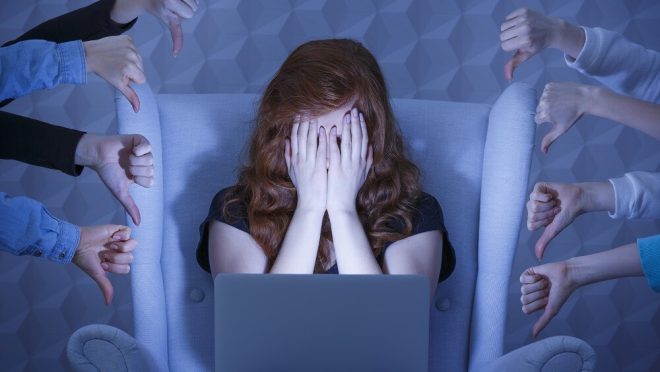Judgement as entertainment: What social media has made ‘normal’
Judgement as entertainment: What social media has made ‘normal’

In today’s world, it is hard to find anyone without social media. From teenagers as young as 13 or 14 to middle-aged and even older people, everyone is active on platforms like Facebook, Instagram, X, Reddit, and many more.
But social media has now reached a stage where people no longer think twice before making jokes about someone’s clothes, face, body, or even personal matters. Mocking has become casual and constants. Without hesitation, many users ridicule others online—forgetting the serious impact it can have.
Cracking a harmless joke and making someone uncomfortable by mocking them are not the same thing. Unfortunately, this difference is being ignored, and the culture of mocking is being normalised. Some people try to raise their voices against it, but many stay silent out of fear of being further humiliated. This silence, however, often leads to insecurity, low self-esteem, and hesitation to freely express opinions. People begin to feel restricted—afraid to speak, afraid to be themselves—because of the risk of trolling.
It is the time to realise that we must not normalise this behaviour. We need to recognise the line between lighthearted humor and harmful trolling. Only then can social media become a space where people can truly connect, share, and express themselves without fear.
Mocking gives us comfort, but hurts others deeply
When social media became familiar to everyone, people mostly used it for communication, networking, and sharing photos or videos. People still do that today, but back then they didn’t face the kind of harsh criticism that has become so common now.
Day by day, trolling has turned into a form of entertainment. For some, it’s just “fun”, but for the person being targeted, it’s exhausting and painful. Many don’t realise how deeply it hurts. Imagine posting a picture and being criticised for your skin colour, your clothes, or the way you look. After that, would you feel free to post again? Most likely, you’d think twice—or stop altogether—because of the fear of being mocked again.
We need to understand that social media is not meant to make people feel small or guilty about themselves. Everyone deserves space to share without being judged. When you troll someone, it might give you a few seconds of laughter, but the person you targeted may carry that hurt for a long time. They might begin to see social media as unsafe, a place where they can’t truly be themselves.
Yes, many say, “I am just having fun,” But let’s be clear—if your joke makes someone feel insecure or humiliated, it’s not a joke. It’s bullying. Sadly, this behaviour is becoming normalised today, and that’s something we must not accept.
Awakening people: Don’t let trolling make us lose our humanity
After a long, heavy day, we often open social media just to relax, scroll for a while, or share a picture. But instead of positivity, we are hit with cruel comments under people’s posts, or pages filled with brutal trolling. And suddenly, you lose the courage to share your own photos.
It feels like people are chasing after chances to mock someone—finding joy in pulling others down. That’s when you start to feel like we are losing our humanity. You hesitate before posting anything. A fear grows inside you: “Whatever I share, people will troll me,” That fear stays. It makes you doubt yourself. You lose the confidence to celebrate your achievements, your dreams, your life—because you are afraid others will laugh at you.
But shouldn’t we stop and ask ourselves: is this what being human means? Hurting others for fun? Clearly, it isn’t. It’s time to wake up, to spread awareness, and to put an end to this cycle. Don’t humiliate. Instead, choose to uplift. A kind comment can do more than a hundred cruel ones.
The truth is, much of the anxiety and low self-esteem people feel today comes from online cruelty. If we treat trolling as the serious issue, we can change the culture. We can speak up and tell others to stop. Making fun of people in the name of “entertainment” may feel like fun for a moment—but for the person suffering, it’s not fun at all. It’s pain. And no matter how you put it, hurting someone is never a joke.
One day on social media, I came across a post by a girl who proudly shared her achievements. Instead of celebrating her success, people filled the comments with accusations—saying it was fake, it wasn’t really her achievements. Honestly, it broke me.
Another day, I saw some pages mocking celebrities just for the way they looked. That too left me feeling exhausted and insecure. At moment likes this, I can’t help but think—social media is slowly turning into a place of baseless jokes and endless trolling. It feels like people have forgotten respect. For a few seconds, they get their laugh, but humanity is quietly disappearing.
A decade ago, we would think twice before saying something hurtful to someone. Now? People openly troll and humiliate others without hesitation. And the saddest part—it’s becoming normal. We see it every day, and we ignore it. Some even excuse it by saying, “This is just how the new generation is,” But no—it shouldn’t be accepted.
In many countries, strict laws already exist against online bullying and trolling. Fake profiles created just to humiliate others are tracked, blocked, and punished. Victims have systems they can turn to for support. Sadly, in our country, the government still doesn’t pay enough attention to this issue. There are no strong laws to protect victims.
I truly hope that changes. Social media should be a space when every individual feels safe, not scared. A space where people connect, not tear each other down. If we want to restore a bit of lost humanity, we need to take this seriously—both as individuals and as a society.


